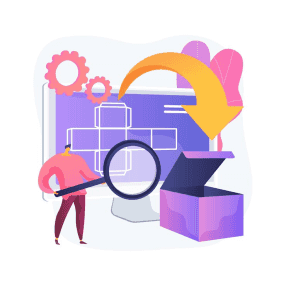2.1.1 Key aspects
Digitalization, in the context of the food supply chain, refers to the use of digital technologies to streamline and optimize various processes, from farm to fork. These technologies encompass a wide array of tools and systems that leverage data, connectivity and automation to enhance efficiency, transparency and traceability
The Key Aspects of Digital Technologies in the Food Supply Chain:
- Efficiency Enhancement: Digital technologies enable the automation of repetitive tasks, reducing manual labor and the potential for errors. This efficiency improvement is crucial for meeting consumer demands for "Convenience."

- Transparency and Traceability: Through data tracking and real-time monitoring, digital technologies offer enhanced transparency and traceability across the supply chain. This is essential for addressing concerns related to "Authenticity, combating counterfeiting and imitations."

- Data-Driven Decision-Making: The abundance of data generated by digital systems provides valuable insights for market analysis, product development, and operational optimization, aligning with the trend of "Taste, pleasure, fun."

- Supply Chain Optimization: Enterprise systems, such as Enterprise Resource Planning (ERP) software, enable integrated management of supply chain operations, accounting, procurement, and more.
